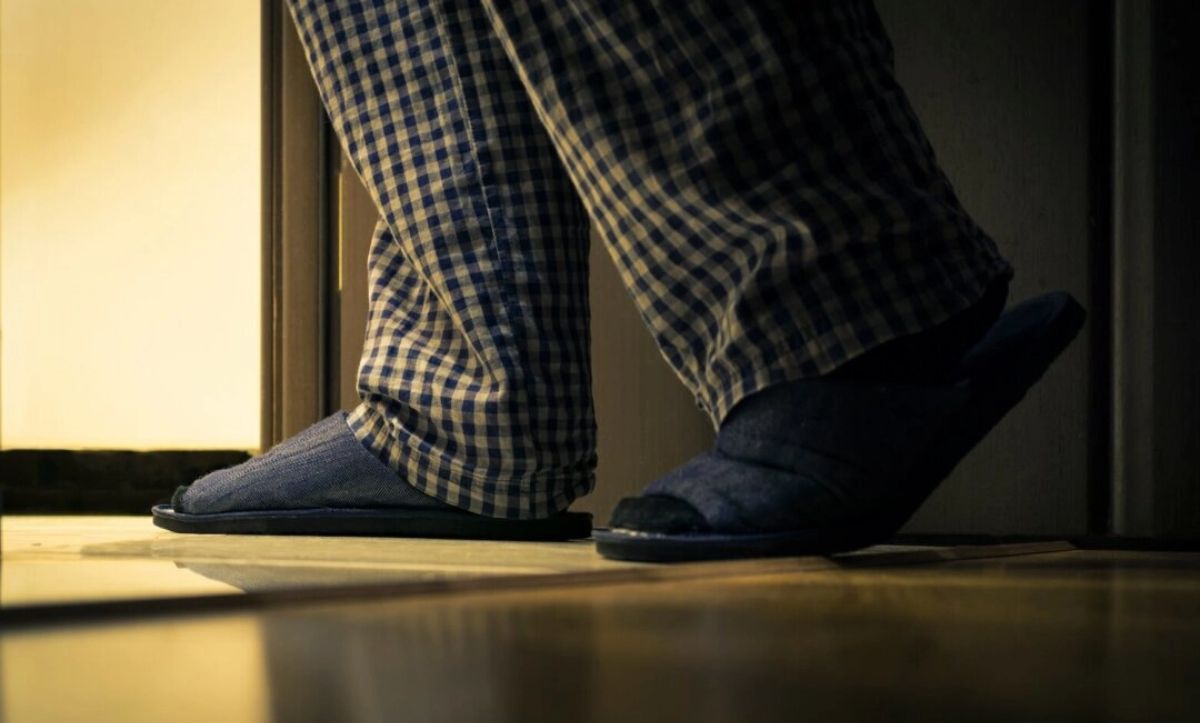Health
Study Finds Unexpected Cause of Nighttime Bathroom Trips
Doing too much of this during the day makes you more likely to pee in the middle of the night.

This article originally appeared on The Epoch Times and was republished with permission.
Guest post by Amie Dahnke
Do you wake up excessively during the middle of the night to go to the bathroom? The reason could be the amount of television you watch during the day.
A new study indicates that people who spend too much time watching videos may be more likely to wake up in the middle of the night to go to the bathroom. The findings, published in Neurology and Urodynamics, indicated that people who spent more time watching movies, TV, or online videos were almost 50 percent more likely to experience nocturia, or the need to urinate multiple times during the night.
Symptoms of nocturia include waking up at least twice to pee at night. Typically, people affected by it are tired and experience sleepiness during the day because their sleep cycles have been interrupted.
The research team looked at data from the National Health and Nutrition Examination Survey conducted between 2011 and 2016, which included information on 13,294 Americans aged 20 and older. About 32 percent of people experienced nocturia, while 68 percent did not. Individuals who spent five or more hours watching TV, movies, or videos were 48 percent more likely to experience nocturia than those who watched less than one hour per day.
Nocturia might seem innocent enough, but over time, it can lead to loss of sleep, putting a person at risk of several health issues.
“Nocturia not only elevates the likelihood of diseases such as hypertension, cardiovascular disorders, and mortality but also contributes to a significant economic burden on society,” the research team wrote. “Consequently, nocturia has emerged as a critical public health concern, necessitating comprehensive attention and interventions.”
How Common Is Nocturia?
Even without television as a factor, nocturia becomes more common for people as they age. According to the Cleveland Clinic, nocturia becomes a common condition affecting at least half of adults after the age of 50 and at least one in three people over 30. Additionally, according to studies, black and Hispanic people are more likely to have nocturia than white people, with the condition occurring 28 percent more often in people of color.
The condition affects more men than women. Anatomical differences between the sexes can affect the likelihood of developing nocturia. For example, men with prostate issues could have a higher risk of developing the condition, while women with prolapsed uteruses or other conditions related to pregnancy may also run a higher risk of experiencing it.
Other factors or conditions that increase the risk of nocturia include:
- Drinking too much fluid before bedtime
- Certain medications, such as diuretics
- Reduced bladder capacity
- Habits where you have unintentionally trained yourself to wake up and go to the bathroom, even if you don’t have to go
- Certain health conditions, including diabetes, high blood pressure, prostate obstruction, heart disease, obstructive sleep apnea, restless legs syndrome, edema, and polyuria. Polyuria is a condition where the body produces too much urine for the bladder to hold.
-

 Health2 days ago
Health2 days agoWhat Have Vaccines Done to Us? The Truth is Disturbing
-

 Health1 day ago
Health1 day agoRussell Brand Goes Quiet as Florida Surgeon General Drops a Bomb on Dr. Anthony Fauci
-

 Health16 hours ago
Health16 hours agoConfirmed: COVID mRNA Vaccines Contain Component that Suppresses Immune Response and Stimulates Cancer Growth
-

 News2 days ago
News2 days agoNikki Haley Reveals Her New Job After Dropping Out of 2024 Presidential Race in Disgrace


















